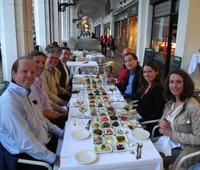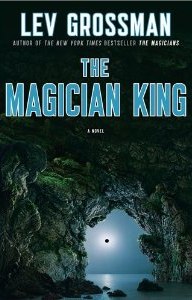Digital Humanities Manifesto (Version 2.0) is unsigned, but its author seems to be Todd Presner (UCLA).
Digital Humanities is not a unified field but an array of convergent practices that explore a universe in which: a) print is no longer the exclusive or the normative medium in which knowledge is produced and/or disseminated; instead, print finds itself absorbed into new, multimedia configurations; and b) digital tools, techniques, and media have altered the production and dissemination of knowledge in the arts, human and social sciences.
I think this characterization of the universe that the humanities study is a bit thin – there are many interesting things to know about the universe and not all of them concern the status of print – but it’s natural to focus on one’s own specialty.
This an interesting document, although its open source enthusiasm sometimes seems tinged with hostility (or contempt?) for working folk who might want to be paid for their labor. In calling for professors to "circumvent or subvert all ‘claims’ that branch out from the rights of creators to those of owners“, the manifesto apparently overlooks the empirically-verifiable fact that most of us are living in a capitalist society. Are digital humanists expected to move to Oneida or Brook Farm? If owners have no rights, then creators cannot realize the value of their work because they cannot exchange it. That might not matter immediately if you’re paid to teach and you create as a hobby, but what happens to those without a sinecure bestowed by the state or by a friendly billionaire?
The manifesto adopts a very pessimistic view of the value of knowledge:
Scholarship and art practice: a) are not‐for‐profit endeavors whose actual costs far exceed real or potential returns; and b) are endeavors that, rather than diminishing the value of IP or copyright, enhance their value.
This strikes me as a classic conflation of price and value. Surely, whether we paint a canvas or examine the economics of the late Roman Empire, we set out in the expectation that the work we create will be more valuable than our time and effort. We might be mistaken, the result might disappoint us, and accidents happen; still, no sensible scholar sets out to waste their time. Inefficient markets, ignorant patrons, and the caprice of consumers may impede the work’s value from being readily converted to cash, but its value is no illusion. Skill and knowledge are worth a lot; unique skill and knowledge are worth more. The humanities used to know this.








